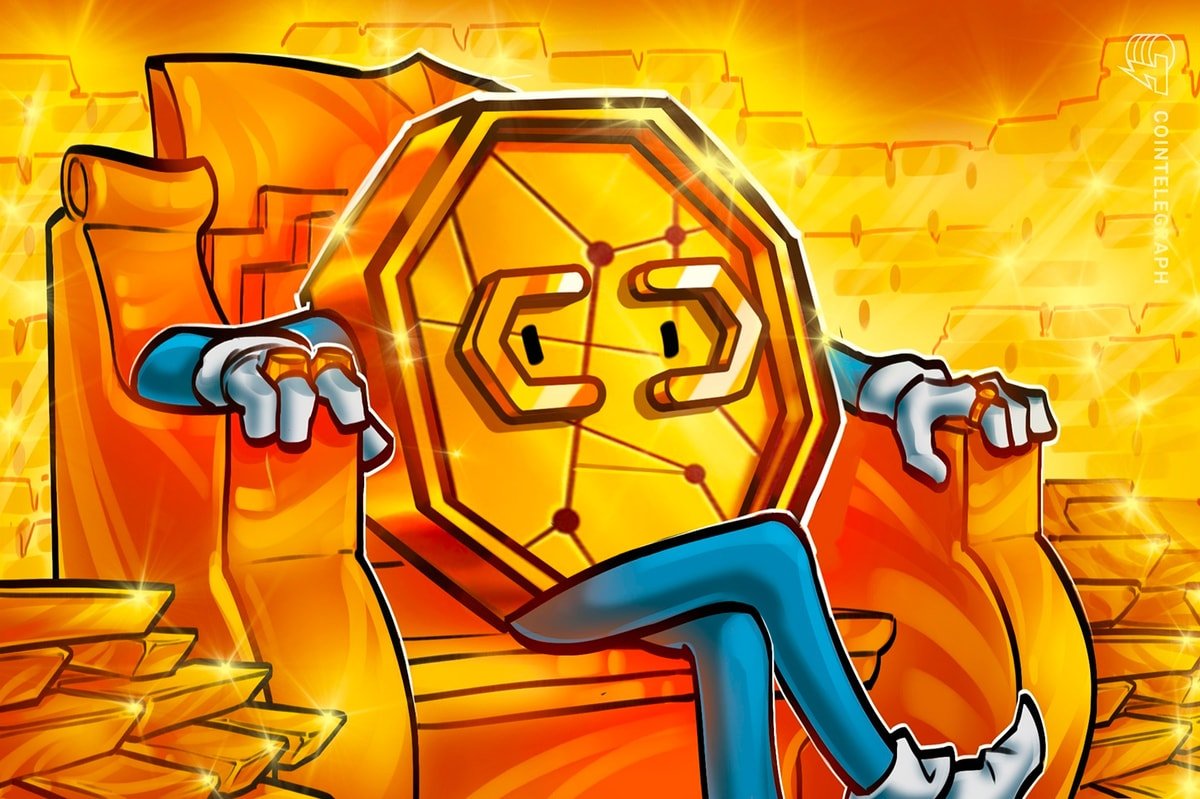Clients with high net worth throughout Asia gradually turn away from US dollar -based investments favoring gold, cryptocurrencies and Chinese assets instead, according to Financial Services Giant UBS Group.
“Gold becomes very popular,” said Amy Lo, the Swiss Bank’s Co-chief of Wealth Management for Asia, during Bloomberg’s new Voices event, held in Hong Kong on May 13.
She cited increasing geopolitical uncertainty and sustained market volatility as primary factors behind the shift. Investors, traditionally concentrated in US-centric assets, are now seeking wider exposure across alternative asset classes, including crypto, raw materials and other currencies.
LO said “volatility is determined here to stay”, causing clients to rebalans against perceived safe ports and growth opportunities in new regions.
China, after years of muted interest, also regains traction among the ultra-welfare. LO noted that clients who previously avoided exposure to China are now proactively asking about investment opportunities.
Hong Kong’s benchmark index, strongly composed of Chinese companies, has emerged as one of the world’s best artists in 2024, which additional fuel for interest.
Bank of America’s latest fund manager survey also shows that global fund managers significantly reduced their exposure to the US dollar in May, marking the largest underweight position of 19 years.
Related: US Bitcoin Reserve vs. gold and oil reserves: How do they compare?
US-KINA TARIFF TRUCE SPARKS Investor Optimism
Christina Au-Yeung, head of investment management services by Morgan Stanley Private Wealth Management Asia, Bloomberg told me that a recent US-China customs weapon has created renewed investor optimism.
“We see an emergence of really interesting themes coming back in China,” she said.
Au-Yeung also pointed to a growing risky mindset among Asia’s richest clients. The company now recommends a balanced portfolio allocation, including 40% fixed income, 40% shares, 15% alternatives and the rest in cash or equivalents.
On May 11, the US and China announced an agreement to temporarily reduce customs on each other’s goods. According to the agreement, the US will lower customs duties on Chinese imports from 145% to 30%, while China will reduce tasks on US goods from 125% to 10%.
Related: Bitcoin acts as ‘value of value that it is’ in the middle of Trump -politikkaos: newly
Bitcoin is considered a value of value
In a recent note, Galaxy-Digital Analysts said that Bitcoin is increasingly considered a digital value of value and notes growing interest from institutions, exchange-dealing funds (ETFs) and even governments.
“Bitcoin’s supply and demand dynamics solidify its place as a ripe digital value of value,” said Ian Kolman, Co-Portfolio Manager at Galaxy.
Supporting this view noticed Blackrock’s head of thematics and active ETFs, Jay Jacobs, on April 25, April 25, that nations are increasingly diversifying away from US dollar reserves, rather than turning to assets as gold – and now, Bitcoin (BTC) – as part of a wider change in the reserve strategy.
Magazine: Metric signals $ 250,000 Bitcoin is ‘Best Case’, Sun, Hype Tiped for Geats: Trade Secrets
